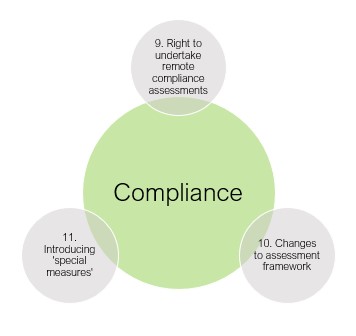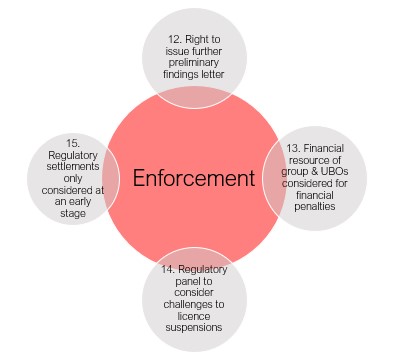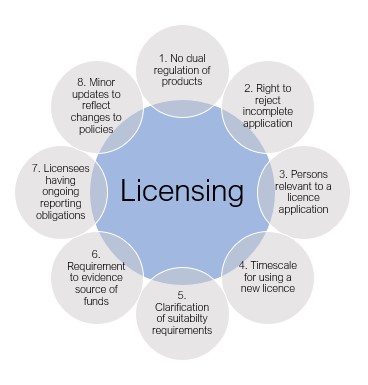Gambling Survey of Great Britain: Gambling Commission’s new approach to collecting gambling participation and prevalence data
In December 2020, the Gambling Commission launched a consultation on proposals to change the way it collects data about adult gambling participation and problem gambling prevalence. Since then, the Gambling Commission has been developing a “single, gold standard population survey for the whole of Great Britain”, in an effort to improve the quality, robustness and timeliness of its official statistics.
Following two years of pilot surveys, stakeholder engagement, interim findings reports and fieldwork conducted by the National Centre for Social Research (“NatCen”), an independent not-for-profit organisation and registered charity, and the University of Glasgow, on 23 November 2023, the Gambling Commission published the first “experimental” statistics of the Gambling Survey of Great Britain (“GSGB”). Thus begins the roll-out of, as the Gambling Commission’s CEO Andrew Rhodes recently described it in a two-part podcast discussion with The Gambling Files, the “largest survey in the world of its kind, on gambling behaviours, attitudes, participation”.
In this blog, we discuss the background to the GSGB, its current status in light of the recent announcement, and why the GSGB is such an important project for the gambling industry in Great Britain.
What is the GSGB?
Background
Prior to the Gambling Commission’s December 2020 consultation, the GSGB was foreshadowed in the Gambling Commission’s Business plan 2020-2021, where the Gambling Commission stated, in connection with its key strategic priority to prevent gambling harm to consumers and the public, it would “review approach to measuring participation and prevalence and publish conclusions”.
As noted above, the December 2020 consultation on gambling participation and problem gambling prevalence research was subsequently launched, which included proposals to change the Gambling Commission’s research methodology to, amongst other things, consolidate the different surveys the Gambling Commission previously relied upon to understand adult gambling participation and prevalence into one population survey, and improve the frequency and turnaround time of the survey data. The response to the consultation, when it was published, confirmed that respondents largely supported these proposals, with an average of two-thirds of respondents agreeing with the proposals to change the research methodology and only one-fifth of respondents disagreeing.
In the meantime, the Gambling Commission had been conducting quarterly telephone surveys on participation and prevalence of problem gambling (the most recent results of which were published on 11 May 2023). However, it was noted by the Government in the White Paper that the telephone survey was “less robust” than the national health surveys of Great Britain in its tracking of gambling trends, and that there are gaps in the evidence and the Government’s understanding of gambling participation and prevalence of harm. This criticism reflected conclusions we had also reached in our joint blog with Regulus Partners on the topic of in-play betting.
It was thus clear, from an industry, regulatory and Governmental perspective, that there was a need for the Gambling Commission to revamp its methodology for the collection of gambling data. In light of the release of the experimental figures, the Gambling Commission’s continued roll-out of the GSGB will be closely followed by the industry.
How is the GSGB carried out?
NatCen describes the GSGB as a survey that asks individuals for their “views on and experiences of playing different games, lotteries and betting, and the effects that these activities may or may not have on people’s lives.” It explains that the GSGB will provide the Gambling Commission with high-quality information about the gaming, betting and playing habits, attitudes and harms experienced across the adult population in Great Britain.
In terms of the specific methodology, the GSGB will be an annual “push to web” survey of up to two adults per household in Great Britain. The Gambling Commission hopes that the GSGB will collect responses from 20,000 individuals each year.
Procedure
NatCen explains that survey invitation letters have been sent to addresses selected at random from the Postcode Address File. In these invitations, NatCen asks that up to two adults in each household take part in the survey online by either:
- scanning one of the QR codes provided in the survey invitation letter; or
- visiting the webpage (survey.natcen.ac.uk/GSGB2) and entering one of the unique access codes provided in the survey invitation letter.
Participants will be asked a series of questions that should take approximately 20 minutes to complete. As a reward for taking part, those who complete the GSGB will receive a £10 shopping e-voucher.
Further information about the GSGB and the procedure can be found on NatCen’s website.
Timeline
The Gambling Commission has published a timeline tracking the progress of the GSGB since its December 2020 consultation. This displays the various stages of the Gambling Commission and NatCen’s progress, such as the consultation, stakeholder engagement, pilot testing and interim reporting on the GSGB project.
Release of experimental statistics
What are the findings?
The findings are (in the Gambling Commission’s words) “not yet fully developed and are still under evaluation”. In the Gambling Commission’s blog announcing the update, Helen Bryce, Head of Statistics at the Gambling Commission, explained that the findings are from the “final step in the experimental stage of the project”, and have been published so users (i.e. industry stakeholders) can familiarise themselves with the GSGB’s methods and findings before they become the Gambling Commission’s official statistics.
On our initial review, we note the experimental data was based on a sample group of approximately 4,000 (up to 3,774) respondents and presents some interesting key findings:
- 50% of respondents (of which 53% were male and 47% female) had gambled in the past 4 weeks, whereas 61% of respondents had gambled in the last 12 months.
- The three most popular gambling activities in the past 4 weeks were the National Lottery (32%), charity lotteries (15%) and National lottery scratchcards (13%).
- Most gambling respondents indicated they had gambled for the chance of winning big money (84%) and because it is fun (72%).
- 2.5% of respondents were considered to be problem gamblers, having scored 8 or higher on the Problem Gambling Severity Index (“PGSI”) screen, and a further 3.5% of respondents were considered moderate-risk gamblers (scoring between 3-7 on the PGSI screen).
Ms Bryce explained in the Gambling Commission’s blog, due to the significant changes in its methodology for collecting this data, these results should not be compared to previous figures sourced from its quarterly telephone surveys or NHS health surveys. Generally speaking this is a reasonable point of clarification to make, but it is made in a clear effort to dampen industry outcry to the alarming increase in the problem gambling rates: as at March 2023, the overall headline problem gambling rate (measured by the PGSI screen) was “statistically stable” at 0.3%.
The Gambling Commission has also set out its views on the strengths and limitations of the GSGB methodology. Notably, it has reiterated that although the experimental sample size was approximately 4,000 respondents, the Gambling Commission still expects to gather data from 20,000 respondents annually when it moves to the official statistics phase.
The findings, which are set out in an easily navigated spreadsheet, can be downloaded here. The Gambling Commission is also seeking industry feedback on the GSGB, which can be submitted through its online form.
Current status of the GSGB
The Gambling Commission has recruited Professor Patrick Sturgis, Professor of Quantitative Social Science at the London School of Economics, to undertake an independent review of the GSGB methodology. Professor Sturgis’ findings and recommendations will be published by the Gambling Commission “early next year”, with a view to the GSGB methodology becoming the Gambling Commission’s official statistics “later in 2024”.
The Gambling Commission’s previous update on the GSGB came in a blog from July this year. Having hosted panel workshops with three stakeholder engagement groups (academics, representatives from the gambling industry and individuals with lived experience), the Gambling Commission stated that it intended to publish the first set of quarterly official statistics in Spring 2024, alongside a timeline for future quarterly release dates. With the Gambling Commission seeking an independent review of the GSGB’s methodology, it now appears that the Gambling Commission will not adopt the results of the GSGB as its official statistics until later next year.
Why is the GSGB important?
The Gambling Commission has a duty to advise the Secretary of State on: (a) the incidence of gambling; (b) the manner in which gambling is carried on; (c) the effects of gambling; and (d) the regulation of gambling (see section 26(1) of the Gambling Act 2005).
NatCen explains that the information collected by the GSGB will help the Gambling Commission to fulfil this duty by being “written up in reports for policy makers to use in their decision-making process” so it may be used to “inform policy changes in the gaming, betting and playing industry”.
Furthermore, in its Evidence gaps and priorities 2023 to 2026, published on 23 May 2023, the Gambling Commission confirmed it would be using the GSGB to:
- improve its understanding of gambling participation at a national level and in sub-groups of interest;
- produce robust statistics on who is experiencing gambling-relating harms, and how; and
- develop its understanding of how people commit crime or are a victim of crime as a dimension of gambling-related harm.
The quarterly statistics from the GSGB will thus underpin the Gambling Commission’s future decisions about how it can better protect consumers and carry out its regulatory duties.
Of note for online B2Cs, problem gambling prevalence statistics are also referenced in the Gambling Commission’s new remote customer interaction guidance (about which we have written previously). This guidance addresses, among other things, how remote licensees can comply with the requirement under social responsibility code provision 3.4.3(14) of the Licence Conditions and Codes of Practice to “take account of problem gambling rates for the relevant gambling activity as published by the Commission, in order to check whether the number of customer interactions is, at a minimum, in line with this level”, which came into effect from 12 September 2022.
Licensees should familiarise themselves with the experimental findings, as the Gambling Commission intends. It is, in effect, a warning: Licensees should understand how to interpret the findings of the GSGB and carefully consider these results for when they become the Gambling Commission’s official statistics. Licensees should use this data to inform the minimum levels of customer interactions they are making with customers – or risk enforcement action by the Gambling Commission for not complying with a condition of their operating licence.
Summary
Following criticism of its prior methods for collecting industry statistics, the Gambling Commission appears to be building a robust research methodology to ensure the GSGB will produce its gold standard population survey for the whole of Great Britain. The latest problem gambling rates collected by the GSGB (albeit ‘experimental’) have indeed attracted further scrutiny from the industry – some may argue that the Gambling Commission anticipated such scrutiny and pre-emptively commissioned Professor Sturgis’ independent review of the GSGB. Either way, we fully expect the Gambling Commission, in its future regulatory decisions, to place significant weight on the evidence drawn from the GSGB when it becomes the Gambling Commission’s official statistics.
With new customer interaction requirements for remote operators in Great Britain in effect, we recommend all licensees (and especially online B2Cs) review the experimental findings, stay apprised of the GSGB’s further progress and closely analyse the problem gambling data that is released in light of the number of interactions they are carrying out with customers, in preparation for the GSGB becoming the Gambling Commission’s official statistics next year. After all, we know the Gambling Commission will be doing the same in future compliance assessments.
Please get in touch with us if you have any questions about the GSGB and how its results should be used to inform your remote customer interaction policies and procedures.
In “push to web” surveys, respondents are recruited offline (such as via another survey, or through the post), and then encouraged to go online and complete a web questionnaire.


